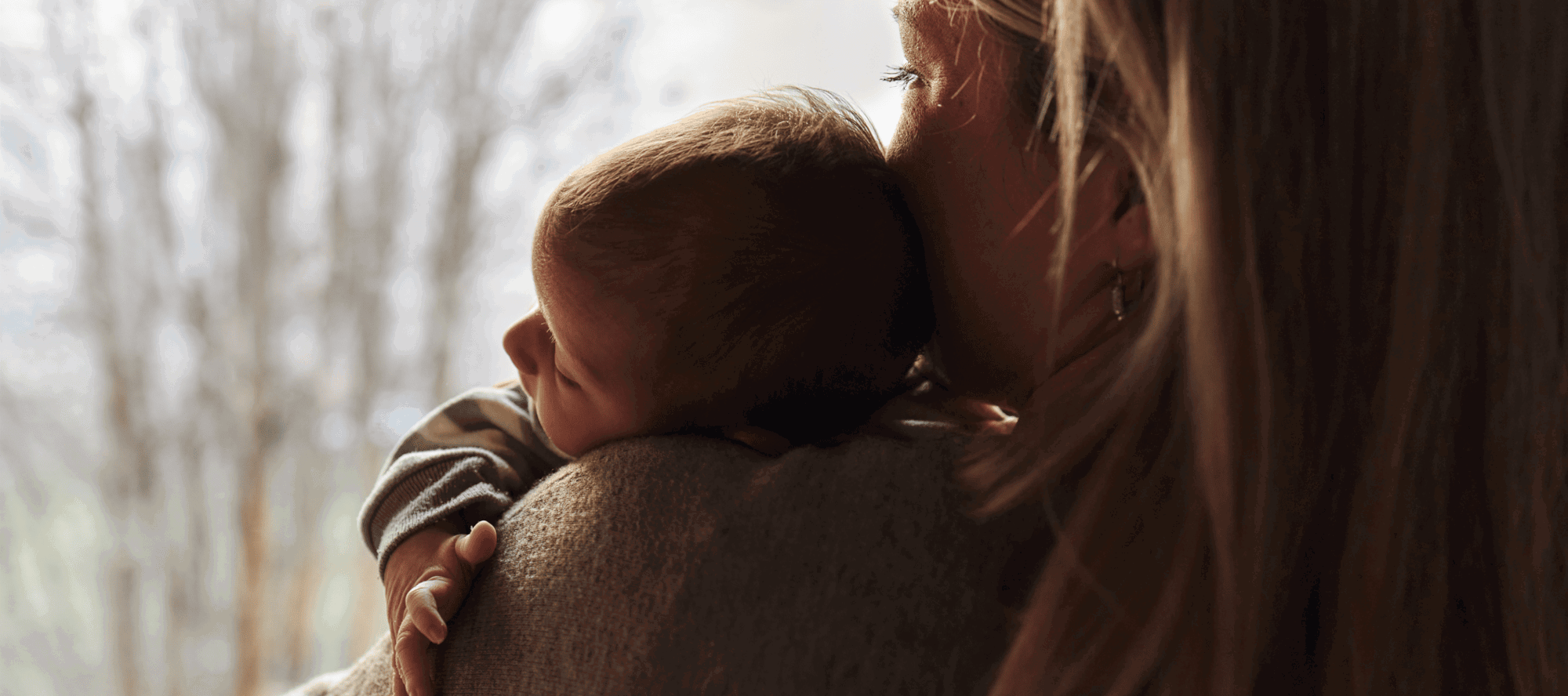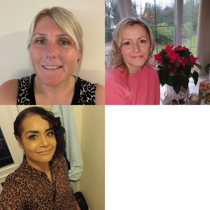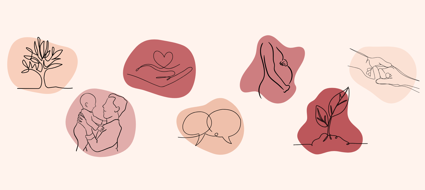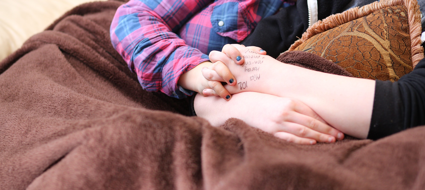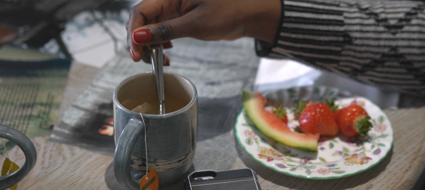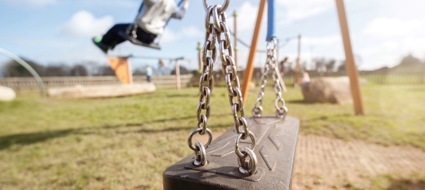Life isn't about waiting for the storm to pass. It's about learning how to dance in the rain.
Vivian Greene
To help families ‘dance in the rain’, we need to strengthen their umbrella.
That was the clear message from parents with lived experience of mental ill health and substance misuse, who had experienced separation from their children.
Pregnancy can onset or worsen mental health, sometimes leading to harm to the child. However, removing children by social services creates further trauma and can contribute to a cycle of repeated removal and trauma.
In November 2023, NHS England funded the Research Engagement Network development initiative to engage communities whose voices are absent. This led to co-production sessions on research methods, approaches and design with parents with experience of mental ill health, substance misuse, and children's social care intervention.
The group produced a lay summary and infographic that analyses and summarises a review by Bacon et al. (2023) which explored the evidence around the views and experiences of parents and social care practitioners around support for parents with mental health problems and social care involvement. The review found that mutually trusting relationships between families and professionals alongside a strengths-based, holistic, preventative approach to support is needed.
My career has spanned both children’s and adults social care services – I previously worked for Early Break – a charity that delivers a programme for parents who are substance users overseeing their whole family approach to parental substance misuse. Through my contacts, I approached them to build on established knowledge and relationships.
My vision was not to simply teach people how to sign up to research studies, but to offer training in research methods, approaches and design, so that they could take control of how research affecting them was approached. This replicated a similar tried and tested model of social work practitioner research training co-delivered by professor of social work, Aidan Worsley. The intention was that this would be co-produced. Therefore, I went in with very little structure or certainties of what we might create. This work has taught me so much, not least what co-production is, and it is very different from consultation.
Parent led co-production
From the beginning it was vital that power and control of the process lay with the group of parent volunteers. Parents led on where and when we met, set the rate they were paid as well as determining what mattered to them around research. They identified barriers and ways we could address those, and what their priorities were.
The parents directed how we communicated between sessions, what their outputs would look like, and we took the time to listen and respond. I entered a space I never have before in social work, one of friendship. I don’t mean I haven’t felt close connection to people I have worked with before, of course I have as is to be expected with relationship-based practice. But as a social worker, there has always been a maintenance of boundaries and some imbalance of power.
In this situation, although I was approaching people who were accessing services, I was not there in the capacity of social worker for them or their families. I was there as a researcher. The boundaries were removed, and this gave way to an authentic and organic way of creating new knowledge and understanding. Together, we created a model of co-production that can be replicated in other demographic and geographic areas.
Parental mental ill health and children’s social care intervention
Through these discussions, an opportunity arose to work together with academics from universities in the North West, coordinated by University of Central Lancashire. This work involved a Rapid Conversion of Evidence Summaries Project, an initiative by the Methodological Innovation, Development, Adaptation, and Support with the cross-cutting theme by the Applied Research Collaboration North West Coast.
Three of the group members took up this opportunity. All had experienced intervention from children’s social care, had experienced separation from their children, and had lived experience of mental ill health and substance misuse.
With support from the academics, we identified a topic close to their hearts – parental mental ill health and the impact that children social care intervention has in this situation.
We made up a group of four different women, with different backgrounds and experience, but united in a quest to review the evidence available and summarise it in a way that social workers and other social care practitioners would have time to read without diluting the findings.
Over the course of six months we met in-person and online to analyse and summarise a review by Bacon et al (2023) and make recommendations to practice.
Key themes
- A downward spiral of service intervention: Parents feel judged and stigmatised. Interventions create fear, which worsens parents’ mental health and reduces engagement with services.
- Working with parents, not against them: Professionals who focus on parents' strengths and show empathy build trust and achieve better outcomes.
- Support wanted versus support provided: Parents want holistic support, including mental health, financial, and family involvement, but often receive something different.
- Constrained by service rigidity: Professionals want to help more but are held back by limited resources, leading to burnout and high turnover.
Implications for practice, policy and research
Based on the findings of the review, our team highlighted implications for practice, policy and research. These were:
- Practice: Social care should focus on building trust, understanding parents’ pasts, involving families, and providing a safe, supportive environment. Trusting relationships are formed through tackling stigma, empowering parents and helping them to be honest and avoid crisis through supporting them to make positive decisions. Professionals offering safe and non-judgemental spaces that account for parent’s past trauma and associated shame improves the experience for the child, parent and professional and ensures all issues can be addressed.
- Policy: More government funding is needed to help local authorities provide proper support.
- Future research: Future research needs to collect more stories from parents, in particular fathers and people from different backgrounds, include ethnicity, disability, financial situations to enhance the understanding of their experiences.
Collectively we were keen to create something visual, that professionals could refer to and keep in mind when getting involved with families, to support parents to effect change, without re-traumatising them, but while simultaneously protecting children. The infographic is the visual output of this.
